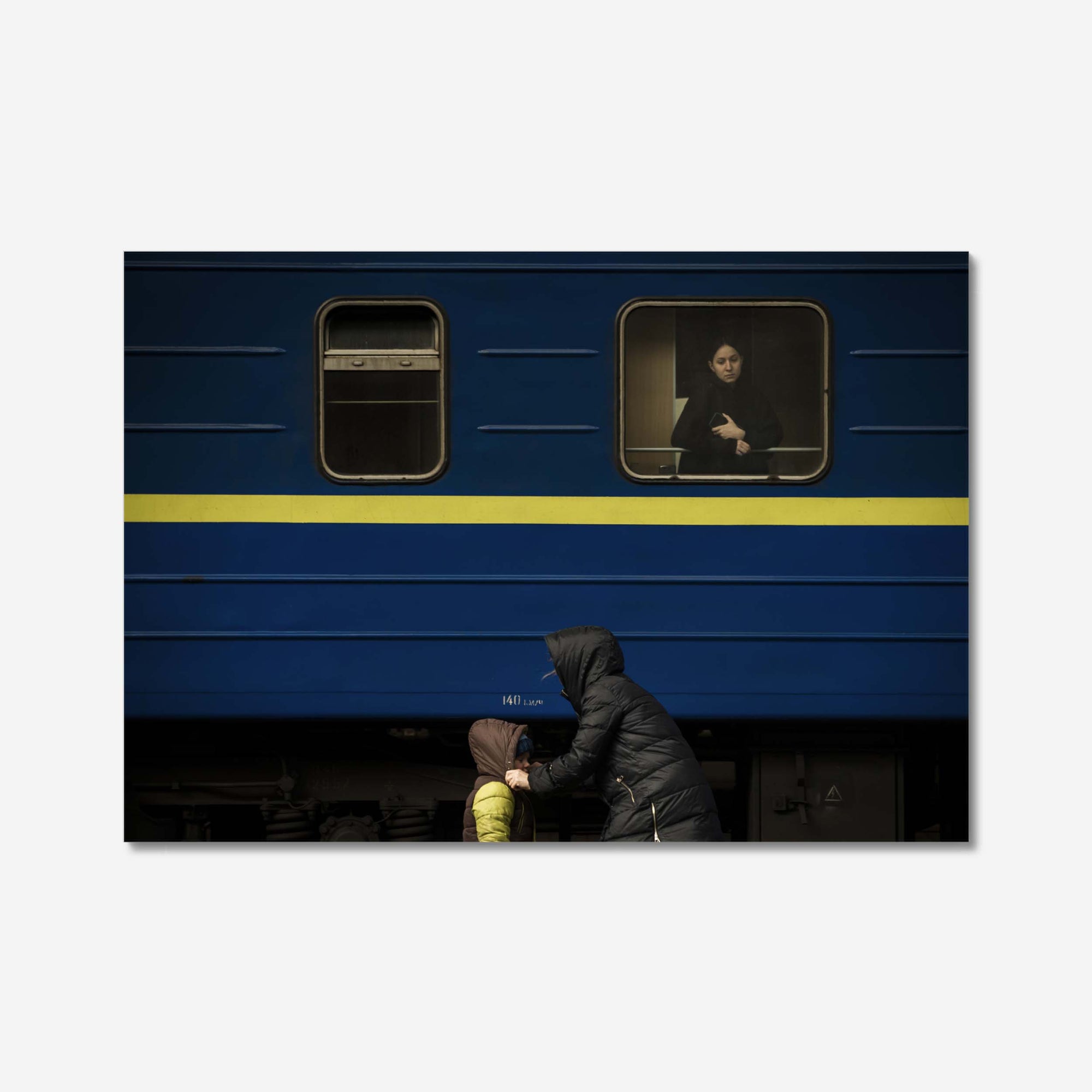Train Station - Daniel Carde
“A woman and child who have been displaced exit the main station toward the platforms as an employee points another person the direction he needs to go at the railway station in Lviv, Ukraine on March 13, 2022,” says the photographer Daniel Carde. “At least 35 people were killed earlier on this day when Russia attacked the Yavoriv training base with around 30 cruise missiles.”

